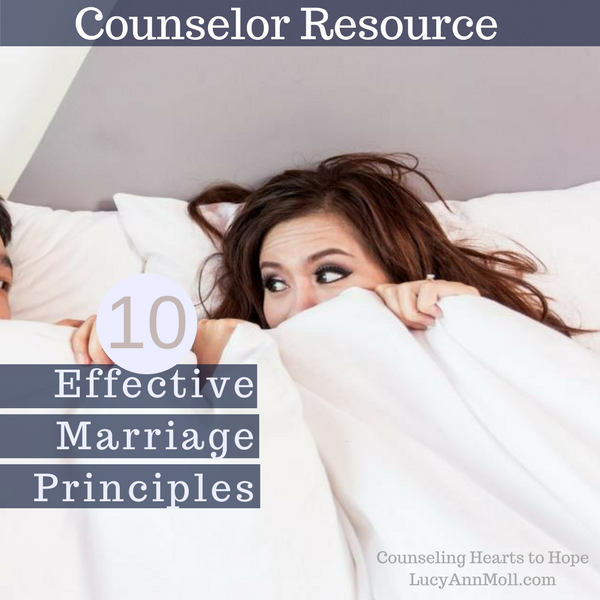
by Lucy | Apr 30, 2019 | People Who Hurt |
My dad died on Easter the year it was also April Fool’s Day. God picked the day. And it suited Dad. Ever the jokester, he’d think it funny that God chose this particular day for his homecoming.
But none of this was funny at the time, of course.
Grief is hard. And it’s personal and lonely and hard. Yes, I said it again.
I am the last one left.
And I realized I am the last one left in my little family of origin. Many, many years ago my mom had a fatal heart attack. Then a while back, my brother died for stupid reasons. (Another story for another time.)
Now my dad.
Sure, I cried. Of course I cried. Death hurts. But I didn’t cry without hope.
But we do not want you to be uninformed, brothers, about those who are asleep, that you may not grieve as others do who have no hope. 1 Thessalonians 4:13, ESV
My brother’s death brought Dad and I close. Grieving together we recaptured years lost to busyness and complications. We laughed, we cried, we lived, we loved. But now I sensed loneliness.
Click & Tweet!
I wore pink.
At my dad’s funeral, I shared my eulogy at a Catholic church in a suburb of Chicago. My dad’s second family–his widow and three young adult children–chose traditional black attire.
I wore pink. For me, death has lost its sting.
“O death, where is your victory?
O death, where is your sting?” 1 Corinthians 15:56, ESV
My Eulogy for Dad
Dad loved deep. This is what I’ll always remember about him.
He cried when Ted died, when he buried his eldest child, just a few years ago. Tears of grief, of love. What a tragedy, losing Ted. Dad and I grew close, then, grieving together, sharing stories, and healing.
Dad didn’t have the easiest childhood or teen years. But he kept on moving forward. He didn’t quit. Even in his 30s when he had horrible back pain and his first back surgery … even in his 40s when a doctor finally diagnosed him with manic-depression and he got on medication, he didn’t quit.
When I asked his doctor a while back jus how depressed he was, on a scale from 1 to 10, he said a minus 11. A minus 11? This was eye-opening to me. It is a testimony to just how deep Dad loved.
Even in deep depression, he did what he had to do to take care of his family. Family was his priority. He loved all of us in the crazy, complicated way only he could. I will miss the cat stories and our Saturday lunches and the crazy Goodwill purchases he kept in his trunk.
I will miss Dad, who loved deep.
Do you know grief too?
A better question may be who doesn’t know grief, right?
Click & Tweet!
Here are a few resources I recommend for folks grieving the loss of a loved one. I also offer to come alongside you in your pain as a biblical counselor who has been there and also helped others make sense of their pain.
Resources
God’s Grace in Your Suffering by David Powlison
Grief: Waling with Jesus by Bob Kellemen
God’s Healing for Life’s Losses by Bob Kellemen
Suffering Is Never for Nothing by Elisabeth Elliot

by Lucy | Nov 7, 2018 | emotions, relationships |
What are the top needs of moms?
A while back, I queried a few hundred moms in a Facebook group, asking their top 3 needs. My imperfect scientific study revealed these three top vote-getters:
1. A support system of family and/or friends
2. Time alone
3. Encouragement
In this short article, let’s focus on #1. Your can read more about time alone and encouragement here and here.
Family: I Need a Mother Too
Are you old enough to remember the 1970’s TV show “The Waltons“? Watching reruns warmed my toes many an afternoon. Ma and Pa would have a problem on the farm, and the family and neighbors would stick together to solve it. The bonded in tough times.
John Boy was kinda cute in a geeky way. Me and Mary Ellen–we could have been best friends. Grandma had a sour personality too, but she cared, really cared. You could tell.
Back then, in my grade school years, I ached for the sense of belonging too. A network of caring people take note of your needs. They help you and pray with you and for your. They listen. And no one does this better than famiy–usually but not always. Read more about overcoming pain caused by family.
Finding Close Friends at Church!
A couple decades ago, when my family moved to a new home in a small city away from family and friends, I put a plan in action.
Join a friendly church and — presto! — embrace a new, big family.
But my plan was a fail! You see, once we settled into our new church, our friendly “friends” quickly turned back to their own tight circles of longtime buddies.
Have you looked to a church or other group as your support system because you lacked family and friends? How did it go for you? Could you be at home at a church where you were close to Jesus yet not so close to the people? Did you reach out too?
Making Mama-Friendly Connections
The women I queried shared a bunch of ideas on creating a support system when family and friends. Here are some.
Friends to Listen
Babysitter!
- One mom had to return to work when her baby was a newborn. “A reliable babysitter who was prompt, a woman who truly loved children and was extremely dependable.”
- Another woman with four small children says she needs “a friggin’ baby sitter during the day so that I can go get things done without kids, or so if one child has an appointment, I don’t have to lug all of them with me.”
- “Before I had my boys, we lived in a neighborhood where the mothers would trade time, watching each others kids, so they could have some time to do something else. Kind of a babysitting co-op. I think for every hour you put in, you got one back.”
A Mentor
- When family is far away, having an older woman helps. Her wisdom, her laughter, her presence. Also mentors for kids!
“One of my top needs or desires while they were younger (and even now) was/is for older mentors or adults to be in their and our lives. They have no grandparents, no uncles, aunties or cousins and at times I would just love someone to encourage and give advice and just be proud of our children like we are.
I can only imagine what it might be like to ring my parents up and say help or come to this show to watch the kids! I guess I’m saying mentors or adopted aunties or uncles would be a dream come true.”
- Shares a mom who husband travels a lot: “My youngest (has) ADHD. A male mentor could have helped him in his social maturity and awkwardness.”
Friends, please share one of your mama needs in comments. Let’s encourage one another.
Counseling Hearts to Hope!


by Lucy | Oct 9, 2018 | biblical counseling, emotions, relationships |
HELP & HOPE for overly sensitive wives! Has your husband claimed you’re overly sensitive? Maybe you are overly sensitive. Maybe you aren’t.
Scroll to the 4 tips below.
This article by biblical counselor Andrea Lee appeared first here at The Biblical Counseling Coalition website and used with permission.

Touchy. Moody. Easily offended. Has your husband ever said this about you?
Click & Tweet!
Does he walk on eggshells around you or fear you will misinterpret his comments? Are you overly sensitive to his assessment of your performance or character?
To define my terms, an “overly sensitive wife” is excessively hurt by the delivery and content of her husband’s comments.
Her emotional frailty makes playfulness in the marriage rare. Furthermore, she overreacts to any reproof, making it hard for her husband to help her grow. Instead of overlooking a poorly timed comment or opinion with love, she is devastated. She is allergic to criticism and assumes her husband is trying to hurt her.
Let me be clear.
There are times when you as a wife must address issues of biblical obedience or conscience with your husband.
You should confront your husband if he maliciously uses humor, constantly criticizes, or is regularly harsh and irritable. Such provocation is ungodly and if this is a pattern, discuss this with him, and if needed, seek help from your pastor or a biblical counselor.
But often believing husbands are not being malicious. Nonetheless, you might find yourself provoked, offended, and hurt. Even though your husband could grow in his ability to gently reprove you, you know you’re part of the problem.
Such emotionally disproportionate responses never lead to peace. As you examine the ways you contribute to low-grade conflict in your marriage, pay attention to the following four areas.

1. Realize the connection between desires and interpretations
Our values and desires shape how we interpret our experiences. In other words, the things we desire, cherish, and love more than God influence the way we make sense of conversations and circumstances.
For example, because a wife wants to be perfect in an area (mothering, housekeeping, decorating, fashion, cooking, poise, entertaining, etc.), she might overreact when her husband mentions a weakness. The problem isn’t that her husband is wrong or spiteful, but rather she has assigned too much value to this area.
2. Recognize the link between idolatry and pride
When our desires are frustrated, we can respond with unreasonable hurt and irritation. This is idolatry. Idolatry is looking to, clinging to, and trusting in something other than God in order to achieve a desired experience or outcome (Is. 44:17; Hab. 2:18; Col. 3:5).
We either want what God says is wrong, or we want a good thing too much. Foundationally, idolatry serves self. We use things or people to exalt us or to give us pleasure, comfort, control, and approval.
Overly sensitive wives seek fulfillment in their achievement or performance. We are willing to pout, cry, or withdraw when our husbands minimize our efforts. This happens because we’ve merged performance with identity: “If I don’t perform perfectly, then I’m not worth anything.” This may sound like humility, but it’s really pride.
What are some signs that pride may be at work in your life? Stuart Scott pinpoints several markers of pride that fuel oversensitivity. These markers include being …
- devastated or angered by criticism
- focused on self and wanting self to be elevated
- consumed with what others think
- defensive
- convinced that you have little sin and others are more sinful
- disheartened because you are not perfect and have weaknesses.
3. Repent of specific manifestations of idolatrous pride
So what are some desires that create conflict in this area?
Perfectionism
An overly sensitive wife focuses on areas where she wants to be the best. She wants her performance to merit approval from others. And when it doesn’t, she is devastated and reacts with quiet hurt or loud defensiveness.
Fear of Man
Perfectionism and fear of man go hand-in-hand.
The hypersensitive wife wants to be perfect so that others will praise her and have no ground for judging her. When she focuses on her husband’s evaluations and stops worshiping God, her performance takes center stage.
It devastates her when she fails to meet her own standards. Instead of repenting of pride and the way she exalts herself, she lashes out at the one who draws attention to her “failure.”
Control
We all use control as a strategy to get what we want.
And the overly sensitive wife believes she knows best and if everyone would do things her way, life would work at optimal speed and enjoyment. She is quick to defend her motives and ignore her sin. She wants to be seen as blameless in all ways and is unaware that her motives are mixed. And she underestimates how sinful she is and is easily hurt when her husband questions her motives.
Use these descriptions to evaluate the way pride impacts your interactions with your husband. This will help you repent more thoroughly and change more deeply.
4. Respond with worship and love
Our God of all grace (1 Pet. 5:10) can help you to lay aside destructive sensitivity and to put on humble love for Christ and others. Turn to him.
- Ask God for grace and wisdom to repent of wanting your husband to regard you as perfect and worthy of constant praise.
- Pray God will help you to cherish Christ’s perfection and put away attempts to establish your own righteousness.
- Thank God He empowers your love and service (1 Pet. 4:11) and causes you to grow (1 Pet. 5:10; 1 Thess. 5:23-24).
- Choose to believe the best about your husband. Assume he has good motives unless he confesses otherwise (1 Cor. 13:4-8; cf. 1 Cor. 4:5)
- Focus on loving your husband and praying for him rather than on being loved perfectly by him (Phil. 2:3). Only Christ will love you perfectly.
What fuels your over-sensitivity?
1 Stuart Scott, From Pride to Humility (Bemidji, MN: Focus Publishing, 2002), 6-10. 2 For more on the ways sin is natural, see Ed Welch, Crossroads: A Step-by-Step Guide away from Addiction, Facilitator’s Guide (Greensboro: New Growth Press, 2008), 31.
Want Help?
It’s miserable to be overly sensitive, right? You’re often anxious, afraid, and just plain sad. May I suggest that you consider getting help from a trusted Christian friend, a pastor, or a biblical counselor?
A great resource is Heart2Heart Counselor Directory! See it here. Look over the personal profile pages of experienced and vetted female biblical counselors, listed by location and speciality. Nearly all Heart2Heart counselors also counsel by Skype/Facetime too.
Counseling Hearts to Hope,


by Lucy | May 2, 2018 | biblical counseling, Counselor Resources, relationships
Effective Marriage Principles help couples know what a God-honoring marriage looks like and assist counselors in counseling hurting couples. Biblical counselor Bob Kellemen includes a link to a one-page PDF document too. Use this Counselor Resource in your own marriage or with the couples you counsel. These 10 effective marriage principles appeared first here on Bob’s website and is used with permission.

Gospel-Centered Marriages
I’ve done a lot of marriage counseling lately. Consistent biblical themes keep arising. I’ve collated them into 10 effective marriage principles for couples and for marriage counseling. The first 8 principles are for both the husband and wife. The final 2 are more specifically for the husband (# 9) and the wife (# 10).
Notice that the last two principles are where a lot of couples and a lot of counselors start—with biblical roles in marriage. Obviously, this is a vital biblical area. Yet, Paul did not start Ephesians with Ephesians 5:21. He started it with gospel-centered principles of salvation, daily Christian living, and relationships. Then, building upon those foundations, Paul moved toward the roles, responsibilities, and callings of husbands and wives. With these 10 effective marriage principles, I’ve sought to do the same—laying out a gospel-centered foundation for marriages and marriage counseling.
I now regularly hand out these 10 effective marriage principles as a one-page guide for the couples that I’m counseling. Feel free to do the same—with small margins, you can make these 10 principles all fit on one page! To prove it, click here for your one-page PDF document. You can send it to others using this shortened link: http://bit.ly/MarriageMC10
Here Are 10 Effective Marriage Principles
1. Keep Putting Jesus First; Keep Loving Jesus Most
Matthew 22:35-38
Love God most with your most: with all your heart, soul, mind, and spirit. Repent of anything you put on the throne above Jesus. Put Jesus before yourself. Put Jesus before your children, your work, your ministry. And put Jesus before your need to be right. Put Jesus first. Love Jesus most.
Click & Tweet!
2. Be Empowered, Changed, and Comforted by the Trinity
Ephesians 5:18; 6:10-18; 2 Corinthians 1:3-8
Paul surrounds his marriage counsel with Ephesians 5:18 and 6:10-18. Spouses change as they are filled by the Spirit (5:18). Marriages change as spouses become more like Christ in Christ’s resurrection power (6:10-18). In your marital hurts, be comforted by the Father of compassion and the God of all comfort (2 Corinthians 1:3-8).
3. Remember Who Your Enemy Is—Satan!
Ephesians 6:11-12
Your struggle is not against your spouse. Your enemy is not your spouse. And your joint enemy is Satan! He wants to destroy your marriage. Join together as spiritual warriors to defeat Satan in the Lord’s mighty power.
4. Take Personal Responsibility
Joshua 1:6-9; Philippians 4:9
You’ve been given more spiritual tools than most people on the planet. Use them. Be mature and courageous and do what God commands. What you’ve heard in the Word—do! Put it into practice!
Click & Tweet!
5. Take the Log Out of Your Own Eye, Confess, Repent
Matthew 7:3-5; James 4:1-4
Don’t focus on what your spouse is doing wrong or not doing right. Remember Matthew 7:3-5 and take the mote out of your eye. Recall James 4:1-4—the real problem in any marriage resides within your heart. Ask God to reveal any sins to repent of. Ask forgiveness of your spouse.
6. Forgive Each Other, Reaffirm Your Love, Comfort Each Other
2 Corinthians 2:5-11
Your spouse will never repent perfectly or be perfect. Still, forgive them as Christ forgives you. Still, reaffirm your loyal love to them as Christ loves you. And still, comfort them as the God of comfort comforts you. Surrender bitterness. Refuse to keep track of wrong. Love. Start afresh every morning as God renews His faithfulness every day.
7. Speak Life Words, Not Death Words to Your Spouse
Ephesians 4:29; Proverbs 18:21
When your spouse hurts or fails you, do this:
1.) Find comfort in Christ.
2.) Seek hope in God.
3.) Take the mote out of your own eye.
4.) Forgive the mote in your spouse’s eye.
5.) Love like Christ. Say this, “My spouse is doing ______. I’m going to respond like Christ by thinking and doing ______.” Speak life-giving, helpful words about and to your spouse—words that nourish them according to their need, that it will benefit your spouse.
8. Put the Interests of Your Spouse First in the Power of Christ
Philippians 2:1-5
When your spouse doesn’t meet your need, be filled by the One who meets your every need—the Trinity Who encourages you, is compassionate with you, values and affirms you. Out of His fullness, choose to fill your spouse by putting their interests before your interests. Put your spouse first.
9. Husband: Shepherd Your Wife with Christ’s Sacrificial Love
Ephesians 5:22-33; 1 Peter 3:7
Husband, your #1 marital calling is shepherding your wife.
Click & Tweet!
Shepherd her like Christ shepherds the church: with death-to-self, sacrificial, agape, mature, other-centered love. Ask God to empower you to live out Ephesians 5:22- 33. Seek to know your wife richly and to treat her with respect as a spiritual heir with you (1 Peter 3:7).
10. Wife: Love Your Husband Like the Church Loves Christ
Ephesians 5:22-33; 1 Peter 3:1-6
Wife, your #1 marital calling is to love your husband with respecting love (Ephesians 5:33). Mature respect encourages strengths, affirms gifts, and gently, humbly challenges wrongs. Mature respect speaks the truth in love to help your husband to keep growing in Christ—because you are for your husband and believe in Christ’s work in him. Ask God to use your godly life to draw your husband closer to Christ (1 Peter 3:1-6).
Click & Tweet!
Counseling Hearts to Hope,


by Lucy | Mar 26, 2018 | biblical counseling, relationships
Are you the mom of grown children? Have they made foolish choices? Believe me, you are absolutely not alone. Today’s guest writer is Suzanne Holland (listed on Heart2Heart Counselor Directory), has her own story to tell and words of godly wisdom. Her article appeared first here and is used with permission. (Edited for space.–LAM)

A few weeks ago, I wrote about some of the regrets that I experience, now that my children are grown and have left our home. I heard from quite a few of you about that post. And I learned that I am definitely not alone in looking back on those child rearing days with a few tears.
What I also heard from many of you is that those tears continue to run fresh at times, as our grown children make foolish choices. So today, I’d like to talk about how we can deal with our emotions and how we can honor God when grown children choose a wrong path.
Beloved Children, Foolish Choices
First, let me say that we should probably expect that our children will make a few bad choices. After all, their brains are not fully developed until they are 25 years old. Also, know you cannot control your grown children, nor should you try to do so. (But if he or she is living under your roof or receiving material support from you, then you do have some leverage to enforce rules.)
So, when grown children make bad choices, what are we to do?
Click & Tweet!
I believe that there are a few things that we can and must do in this circumstance.
1. Pray for Grown Children
The first thing is to pray. God calls us to pray without ceasing, and this is no exception. Ask the Lord to show your child that the choice he is making is foolish. If your child is a believer, ask that the Spirit of God would convict him. But if he is an unbeliever, then ask the Lord to use the circumstance to bring about his salvation.
Pray often, both for your own ability to honor God in the circumstance and for your child’s well-being. But don’t forget that the reason your child was created is to bring glory to God. Above all other requests, ask the Lord to make His glory the deepest desire of your heart in the situation.
2. Counsel Grown Children
Second, when our grown children make bad choices, we must offer them wise counsel. The Bible tells us that iron sharpens iron, and that two are better than one, so why should it be any different with our children? If you are on even halfway good terms with your son or daughter, you should be able to speak to them frankly and honestly about your thoughts on their decision.
If you can’t speak face to face, write them a note or call them on the phone and express your concerns. As you would with any adult friend, be respectful and don’t attack them personally. Just point out the downside of their thinking, and let them know that you are concerned, and that you are keeping them in your prayers.
3. Trust the Lord with Your Grown Children
If your child chooses a path that you believe will surely bring disaster, you must trust the Lord with them, and leave it in His hands.
I know personally that this is much more easily said than done but, my dear sister, you must do it. Though this is your beloved child, and you are deeply disappointed or even heartbroken over his choice, know that the Lord weeps with you. He also loves your child and desires the best for him even more than you do. But, one advantage God has in seeking that “best” is that He actually knows what it is!
Dear mother of a wayward child, your Father knows better than you do what is best for that son or daughter. Though what you see before your eyes may look like disaster or doom, God, from the other side, may see salvation or sanctification.
Encouraging Words for Your Grown Children
The most comforting and encouraging Scripture passage I have found on this topic is Isaiah 55: 6-11. I’d like to walk through it with you, adding a few comments along the way to help you with the application.
Seek the Lord while he may be found;
call upon him while he is near;
This goes along with my first bit of counsel, to pray for your child. Pray this Scripture for him, that he would seek the Lord, even as you are seeking the Lord’s will for your response
let the wicked forsake his way,
and the unrighteous man his thoughts;
If your child has fallen into sin, pray for conviction and repentance, leading to salvation and/or sanctification.
let him return to the Lord, that he may have compassion on him,
and to our God, for he will abundantly pardon.
Pray that your child would turn to Christ, and that the Lord would have mercy on him, forgive his sin or foolishness, and restore or revive his heart.
Comforting Words for You
For my thoughts are not your thoughts,
neither are your ways my ways, declares the Lord.
For as the heavens are higher than the earth,
so are my ways higher than your ways
and my thoughts than your thoughts.
This is for us, fellow brokenhearted moms. Remember this truth: God’s plan for your child may be different from yours, but it will always be better, by God’s definition, than you could ever have asked or imagined. Also remember God’s glory, not our children’s happiness, must be the deepest desire of our heart in this or any circumstance. Trusting that God knows what is best for your child is vital to your contentment and satisfaction in Christ.
For as the rain and the snow come down from heaven
and do not return there but water the earth,
making it bring forth and sprout,
giving seed to the sower and bread to the eater,
so shall my word be that goes out from my mouth;
it shall not return to me empty,
but it shall accomplish that which I purpose,
and shall succeed in the thing for which I sent it.
These verses remind us that words of truth spoken to our children are never wasted.
Click & Tweet!
You don’t have to thump your Bible and quote verses to them in order to speak truth into their lives. You can convey Scriptural wisdom to them without quoting chapter and verse.
If they are particularly hostile or closed off to the things of Christ, just offer them your wisdom, informed by Scripture, that comes from your sincere heart. If they reject it, you have done all you can and must leave it in the Lord’s hands. This is the absolute best place for it.










